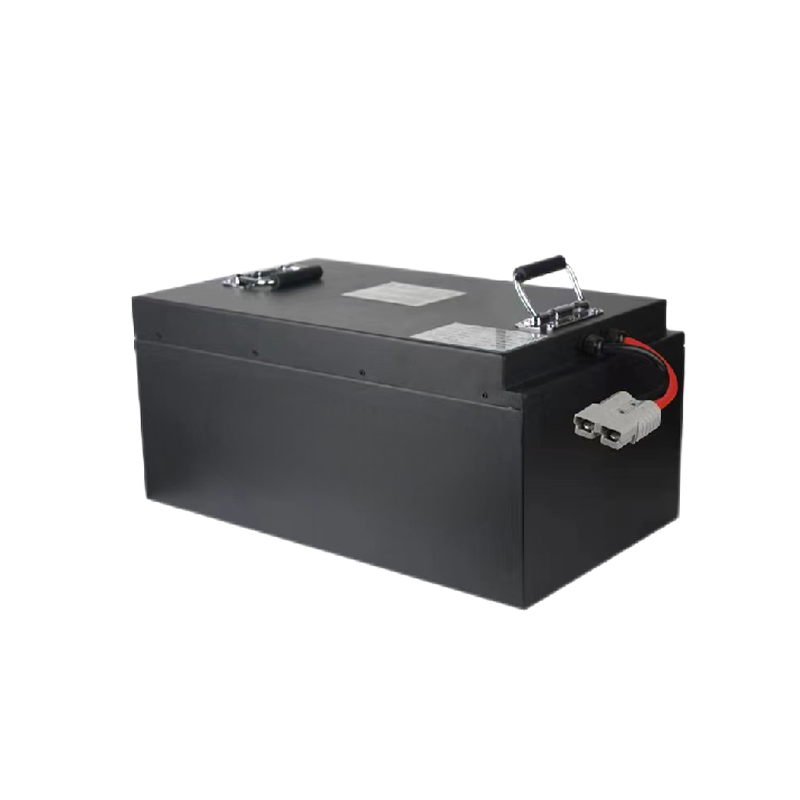Transform Your Warehouse Operations with Advanced Lithium Forklift Batteries
Transform Your Warehouse Operations with Advanced Lithium Forklift Batteries
In today’s fast-paced industrial environment, maximizing warehouse efficiency is paramount to staying competitive. One of the most effective ways companies are achieving this is through the adoption of lithium forklift batteries. This article delves into how these advanced energy solutions can transform your warehouse ope
2025-07-23

Transform Your Warehouse Operations with Advanced Lithium Forklift Batteries
In today’s fast-paced industrial environment, maximizing warehouse efficiency is paramount to staying competitive. One of the most effective ways companies are achieving this is through the adoption of lithium forklift batteries. This article delves into how these advanced energy solutions can transform your warehouse operations, detailing their benefits, installation processes, maintenance requirements, and answers to frequently asked questions.
Understanding Lithium Forklift Batteries
Lithium forklift batteries have emerged as a game-changer in warehouse settings, providing a reliable and efficient power source that enhances operational capabilities. Unlike traditional lead-acid batteries, lithium batteries offer a myriad of advantages, including longer lifespans, faster charging times, and reduced maintenance needs.
What Are Lithium Forklift Batteries?
Lithium forklift batteries are rechargeable energy storage systems designed specifically for electric forklifts and material handling equipment. These batteries utilize lithium-ion technology, which allows for higher energy density and efficiency compared to older technologies.
The Science Behind Lithium Technology
Lithium batteries operate on the principle of lithium-ion movement between the anode and cathode during charge and discharge cycles. This movement generates energy and allows for rapid recharging, making them ideal for warehouse operations that require extensive use of forklifts throughout the day.
Benefits of Using Lithium Forklift Batteries in Warehouse Operations
Switching to lithium forklift batteries can lead to numerous advantages for warehouse operations, which include:
1. Enhanced Performance and Efficiency
Lithium batteries provide consistent power output, ensuring that forklifts operate at optimal efficiency throughout their shifts. Unlike lead-acid batteries, which can lose power as they discharge, lithium batteries maintain their performance until fully depleted.
2. Faster Charging Times
One of the most significant benefits of lithium forklift batteries is their rapid charging capability. These batteries can achieve a full charge in as little as one to two hours, vastly reducing downtime and improving productivity during peak operational hours.
3. Increased Lifespan and Reliability
Lithium batteries typically last longer than traditional lead-acid batteries, often exceeding 5,000 charge cycles. This longevity translates to lower replacement costs and minimal disruption in warehouse operations, allowing businesses to focus on efficiency rather than equipment maintenance.
4. Reduced Maintenance Requirements
With lithium batteries, the maintenance requirements are significantly reduced. They do not require regular watering, equalization, or specific temperature ranges to function effectively, leading to lower overall maintenance costs and labor requirements.
5. Eco-Friendly Energy Solution
As businesses increasingly prioritize sustainability, lithium forklift batteries stand out for their environmentally friendly qualities. They are more efficient in energy use and have a lower carbon footprint compared to lead-acid alternatives, making them a responsible choice for modern warehouses.
Installing Lithium Forklift Batteries: A Step-by-Step Guide
Transitioning to lithium forklift batteries involves a straightforward installation process. Here’s how to ensure a smooth transition.
Step 1: Assess Your Warehouse Needs
Evaluate your warehouse operations to determine the number of forklifts in use, the typical duration of their operation, and battery requirements. This assessment will help you choose the right lithium battery capacity for your needs.
Step 2: Choose the Right Battery
Select lithium batteries compatible with your specific forklift models. Consult manufacturers or suppliers to find batteries that meet your performance and size requirements.
Step 3: Prepare for Installation
Before installing, ensure proper training for staff on handling and maintaining lithium batteries. It’s crucial to adhere to safety protocols during this process.
Step 4: Install the Battery
Follow the manufacturer’s guidelines for installation. Typically, this involves removing the old battery, connecting the lithium battery to the forklift, and ensuring that all electrical connections are secure.
Step 5: Monitor Performance
After installation, monitor the performance of your forklifts with the new batteries. Regularly check for any issues and ensure proper charging cycles to maximize lifespan and efficiency.
Maintaining Lithium Forklift Batteries for Optimal Performance
Proper maintenance is key to ensuring the longevity and performance of lithium forklift batteries.
1. Regular Charging Practices
Implement a consistent charging routine. Lithium batteries can be charged at any time without harming their lifespan, so encourage operators to charge them during breaks or shift changes.
2. Keep Batteries Clean
Regularly inspect the batteries for dirt and debris. Cleaning the terminals and casing can prevent corrosion and maintain optimal performance.
3. Monitor Temperature
While lithium batteries are less sensitive to temperature fluctuations than lead-acid batteries, it’s still important to avoid exposing them to extreme temperatures. Store and operate them within the manufacturer’s recommended temperature range.
4. Check Battery Management Systems
Many lithium battery systems come equipped with Battery Management Systems (BMS) that monitor performance metrics such as state of charge and health status. Regularly review these metrics to ensure optimal operation.
5. Follow Manufacturer Guidelines
Always refer to the manufacturer’s maintenance guidelines for specific practices related to your lithium forklift batteries. This will ensure you are following the best practices for longevity and performance.
Cost Considerations: Are Lithium Forklift Batteries Worth the Investment?
While the initial investment in lithium forklift batteries may be higher than traditional options, the long-term benefits often outweigh the costs.
1. Lower Total Cost of Ownership
The longer lifespan and reduced maintenance needs of lithium batteries lead to lower overall costs. Businesses can save significantly on operational downtime and replacement expenses over time.
2. Improved Operational Efficiency
The increased efficiency and reduced charging downtime can significantly boost productivity in warehouse operations, leading to better throughput and potentially higher revenue.
3. Eco-Friendly Savings
Investing in lithium batteries also aligns with corporate sustainability goals. Many companies find that being environmentally conscious can improve their public image and attract customers who prioritize green business practices.
FAQs About Lithium Forklift Batteries
1. How long do lithium forklift batteries last?
Lithium forklift batteries can last between 5,000 to 8,000 charge cycles, often translating to several years of use, depending on operational conditions and maintenance.
2. Can lithium batteries be charged at any time?
Yes, lithium batteries can be charged at any time without affecting their lifespan, making them convenient for continuous use in warehouse operations.
3. Are lithium forklift batteries safe to use?
When handled correctly and used according to manufacturer guidelines, lithium batteries are safe. They come with built-in safety features to prevent overheating and overcharging.
4. Do lithium batteries require special chargers?
Yes, lithium forklift batteries require specific chargers designed for lithium technology. It is essential to use compatible charging systems for optimal performance and safety.
5. What environmental benefits do lithium batteries offer?
Lithium forklift batteries are more energy-efficient and have a lower carbon footprint compared to lead-acid batteries, making them a more sustainable choice for businesses.
Conclusion
In conclusion, transitioning to lithium forklift batteries can significantly enhance warehouse operations, yielding benefits such as improved efficiency, reduced maintenance, and notable cost savings. As the demand for sustainable and efficient solutions grows, lithium batteries stand out as a practical investment for businesses aiming to elevate their operational capabilities. By understanding the advantages, installation processes, and maintenance needs of lithium forklift batteries, warehouses can be better prepared to meet the challenges of modern logistics and material handling. Embracing this technology is not just about keeping up with industry trends; it’s about leading the charge toward a more efficient and sustainable future.
Key words:
Related News


